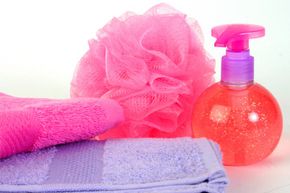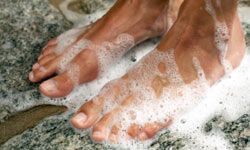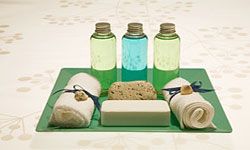In the world of skin care, dirt, oil and sweat are the enemies. When we have too much grime on our bodies, we tend to feel unclean and even anxious. Washing it off is far more soothing, giving us a feeling of health and relaxation.
Before Proctor and Gamble developed Ivory Soap in 1878, cleaning yourself meant washing with a crudely made soap derived from animal fat, water and ash [source: SkinCareGuide]. Today, cleaning yourself with bar soap isn't the only way to wash dirt and sweat off. There are several different types of popular cleansing products you can use on a daily basis to keep clean from head to toe, including cleansing creams, astringents and toners, abrasive scrubs, facial masks and body wash.
Advertisement
Body wash is similar to soap in the way it creates lather, but there are a few key differences that set the two apart. The reasons someone might choose a body wash over soap, for instance, have to do with skin sensitivity and personal preference -- harsh soaps can be a little more abrasive, whereas body wash, especially formulas containing moisturizers, is gentler on the skin.
If you use body wash, wet your skin in the shower or bath, lather some of the body wash on your hands and use a loofah or a washcloth to apply it to your skin. Rinse it off and pat dry with a towel. Don't rub, because rubbing takes away moisture. Experts recommend that you moisturize after bathing to help keep the moisture that you just got from your body wash in your skin [source: American Academy of Dermatology].
The purpose of body wash is to rid your skin of things like dirt, excess oil, odor, sweat and makeup. To find out how it does this, keep reading.
Advertisement


